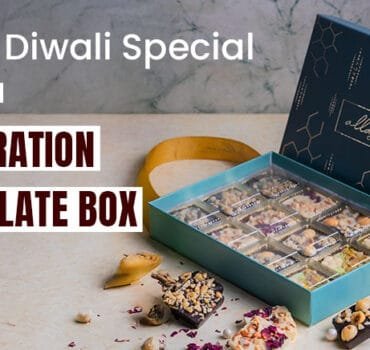Table of Contents
The way people snack in India is changing rapidly. Once dominated by fried or packaged foods, today’s consumers are seeking healthier alternatives that balance taste with wellness. Healthy snacks have moved from being a niche choice to a mainstream demand, especially among urban millennials and Gen Z. What was once considered boring or bland is now at the centre of innovation, with artisanal bakes, handcrafted treats, and clean label options capturing attention.
This shift is not just about individual health goals. Food businesses across India are witnessing how these trends are shaping purchase decisions, influencing loyalty, and redefining product offerings. From small artisanal bakeries to large-scale snack producers, the demand for healthier, more transparent products is driving growth and opportunity.
In this blog, we will explore the latest trends in healthy snacking and the rise of clean labels. You will learn why these shifts matter, how businesses can adapt, and what consumers truly value. Whether you are a food entrepreneur, a bakery enthusiast, or simply curious about how the snack market is evolving, this guide will give you valuable insights.
The Rise of Healthy Snacks in India
India’s snacking habits are undergoing a transformation. Busy lifestyles and increasing awareness about nutrition have encouraged people to look for on-the-go options that don’t compromise health.
- Changing consumer mindset: Health-conscious buyers are checking labels, researching ingredients, and avoiding products high in sugar, trans fats, or artificial additives.
- Balanced indulgence: Snacks are no longer just about guilty pleasures. Consumers want products that taste good while offering some nutritional benefit.
- Urban influence: With growing exposure to global food cultures, Indian audiences are experimenting with plant-based snacks, seed mixes, and even protein-enriched bakery treats.
Food businesses that fail to adapt risk being left behind. By offering healthy snacks that combine convenience with transparency, brands can meet the modern consumer exactly where they are.
Clean Labels: Transparency as a Trust-Building Tool
The concept of “clean label” has gained traction globally and is now shaping Indian consumer preferences. But what does it mean?
A clean label product is one that is free from artificial additives, chemicals, and complicated ingredients. It uses recognisable, natural, and often minimal components that consumers can easily understand.
Why it matters for food businesses:
- Consumer trust: Clean labels signal honesty and transparency.
- Health focus: Shoppers associate clean labels with fewer preservatives and safer consumption.
- Market edge: In a crowded market, simple labels set a product apart.
For bakeries, adopting clean labels could mean focusing on natural sweeteners, whole grains, and reducing artificial flavours. By doing so, they appeal to a new-age audience that values both taste and authenticity.
Role of Handcrafted and Artisanal Bakes
Healthy snacking is not only about nutrition, it is also about experience. This is where handcrafted bakery products and artisanal bakes step into the spotlight.
Artisanal bakeries focus on quality, craftsmanship, and unique recipes. Instead of mass production, they often use traditional techniques, natural ingredients, and a touch of creativity that resonates with today’s snackers.
- Handcrafted appeal: Consumers feel a stronger connection to food that is made in small batches with care.
- Fusion trends: Artisanal bakes that blend Indian flavours with global techniques, offering healthier cookies, breads, and snack hampers.
- Gifting culture: hampers with Artisanal bakes are gaining popularity as thoughtful, premium, and health-conscious gifting options.
For food entrepreneurs, this means there is ample room to experiment. Offering artisanal products not only satisfies a craving but also creates an emotional connection with the buyer.
Key Trends Driving the Future of Healthy Snacking
The healthy snacks market in India is growing faster than ever, driven by both global influences and local demands.
Here are some of the most impactful trends:
- Functional Ingredients – Snacks are incorporating chia seeds, quinoa, millet, and oats to add nutritional value.
- Plant-Based Snacks – Vegan-friendly treats are gaining popularity among younger audiences.
- Portion-Control Packs – Smaller packaging sizes that support mindful eating.
- Fusion Flavours – Blending traditional Indian spices with modern snack formats.
- Sustainable Packaging – Eco-friendly wrappers are resonating with conscious consumers.
By aligning with these trends, food businesses can ensure they remain relevant, innovative, and attractive to the health-driven audience.
Challenges and Opportunities for Food Businesses
Adopting healthier practices does come with challenges. Healthier ingredients often cost more, production processes can be complex, and consumer education is still a work in progress. However, the opportunities far outweigh the hurdles:
- Premium pricing: Consumers are willing to pay more for healthier, transparent products.
- Brand loyalty: Businesses that offer consistent quality and authenticity build long-term relationships.
- Expanding segments: From children to fitness enthusiasts, every demographic is open to better snacking options.
For Indian food businesses, the key lies in balancing affordability, innovation, and transparency while staying true to consumer expectations.
Takeaways
Healthy snacks are no longer a passing trend; they are becoming the new normal for Indian consumers. Clean labels build trust, handcrafted bakery products add value, and artisanal bakery hampers provide both health and indulgence.
For food businesses, the path forward is clear: innovate, stay transparent, and cater to evolving tastes. By doing so, you don’t just meet consumer demands—you create loyal customers who value both quality and care.
Conclusion
The Indian snacking industry is at an exciting crossroads. Artisanal bakes and clean labels are reshaping how people view food, blending wellness with indulgence. For businesses, this shift is more than just a trend; it’s a long-term opportunity to innovate and grow.
Whether it is through handcrafted bakery products, artisanal offerings, or thoughtfully curated hampers, the future belongs to brands that understand the balance between taste, health, and transparency. If you are looking for inspiration in creating healthy gifting experiences, consider exploring Baker’s Studio, where thoughtful snacking meets artisanal craftsmanship.
FAQs
Q1: What makes healthy snacks different from regular snacks?
Healthy snacks are designed to balance taste with nutrition, often using natural ingredients, less sugar, and minimal additives compared to traditional snacks.
Q2: Why are clean labels important for consumers?
Clean labels signal transparency, making it easier for people to understand what they are eating. This builds trust and reassures them about product safety.
Q3: How can artisanal bakes fit into healthy snacking?
Artisanal bakery products use high-quality, natural ingredients and small-batch methods. They can include healthier versions of breads, cookies, and hampers.
Q4: Are healthy snacks more expensive than regular snacks?
They can be slightly more expensive due to better ingredients, but many consumers are willing to pay a premium for health and authenticity.
Q5: What role do artisanal bakes play in gifting?
Artisanal bakery hampers offer a blend of health, taste, and presentation, making them popular as premium, thoughtful, and health-conscious gifts.









